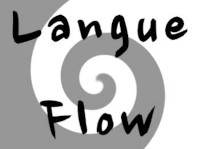
LangueLetter: Multitransinterpluriheterolingual or just polyglot?
Multilingual, translingual, interlingual, plurilingual, heterolingual and polyglot are terms often employed synonymously for texts containing one or more languages or for authors writing in other than their supposed first language.
The lack of exact and nuanced terms may actually hamper the understanding about literature containing multiple languages. It is therefore necessary that we start clearing up the terminology about the various ways authors are using multiple languages.
Multilingual, translingual, interlingual, plurilingual, heterolingual, polyglot… These are only a small selection from the long list of terms applied to texts or writers using multiple languages. None of the designations are wholly unproblematic and they are too often inaccurate and confusing.
As a hyperpolyglot (?) writer and multilingualism (?) scholar, I always encounter difficulties when trying to explain my language situations… and what I really am.
First or primary language
All these epithets contain the basic monolingual idea of having a first or primary language, a mother tongue, and switching between just two or maximum a few languages. But what about us who possess several first languages and utilise dozens of languages in our everyday life and writings?
A language switch from one to another language is typical in a migrant situation or for minorities, when only a minority and a majority language are recognised. I come from a multiple minority background and have migrated many times during my life, changing continents and languages. What should I call myself?
Multilingual
Multilingualism is probably one of the most widely used terms. It is commonly seen as an umbrella concept to designate the employment of more than one language in communication and literary works. The term is often used for bilingualism, too, and today it is indiscriminately used in all kinds of situations and contexts by politicians, pedagogues and many others who see it more as a political issue than an academic term.
Translingual
Translingual writers are defined as authors writing in more than one language or in a language other than their primary language. This concept is also utilised in pedagogy (translanguaging). The definitions apply nicely to authors who migrate from one language to another or write in a few languages. But we who received a package of several languages at birth, and add more languages as we go, dream and write in dozens of languages, where are we?
Interlingual
Interlingual text analysis looks at the interaction between two or more languages and is often employed in translation research. But the meandering linguistic, literary and life roads of us multiple language users and writers are much more complicated than simple interaction. We live and breathe languages and cultures, meaning that we are in constant and multiple processes of transformation.
Plurilingual
Plurilingualism focuses on the interconnectedness and the (code-)switching capabilities of an individual. Plurilingualism is usually accompanied by competences, the result of plurilingual and pluricultural education. They require training and enhancing of linguistic and cultural skills before competences appear. But we who learned already as children to deal with many languages and cultures, are we still being educated? I would rather say that we continue to enrich ourselves.
Heterolingual
Heterolingualism refers to texts. Could a person be heterolingual? This term also contains the idea of a foreign language. What about us who perceive languages – all languages – as not foreign and not strange, but normal, familiar, enjoyable – and every day have great fun with all kinds of languages?

Polyglot
Among the literary multilingualism terms, polyglottism is the least clearly defined (or most broadly), probably because the amount of authors who possess the courage and skills to use a whole bunch of languages is far smaller than those who just add one or two extra languages. A polyglot book contains, according to common definitions in dictionaries, versions of the same text in several languages. This is certainly not correct: a book containing various languages not necessarily contains translations.
Hyperpolyglot
In recent years, I have chosen to call myself a polyglot writer, because of the possibility to add hyper– to it. A hyperpolyglot utilises more than five or six languages. Fortunately this term has no upper limit or I would have to find another word for my use of many dozens of languages not only in writing but also in daily life. To the traditional definition of a hyperpolyglot I would add that we, when asked if we know this or that odd language, would answer: “Not that fluent yet, but ask me again next week.”
Individual language use
In literary multilingualism research, it is important to keep in mind that we are not discussing communities or societies but individual authors. Each writer is an individual whose language use is unique and the result of a myriad of circumstances. The reasons for using several languages in writing are not only biographical, but often also political, social, aesthetic, musical or highly personal.
Further, there are the time and space factors: my use of languages changes from one text or poem to another, because my language use today is different from tomorrow. There are many reasons for my changing languages, ranging from what I am reading and what films I am watching to the people I am talking with, where I am travelling and what words or expressions I pick up today.
Refined tools needed
In addition to the above widespread terms, also hybridism and many other terms have been suggested for literature containing multiple languages. It is time to start cleaning up the terminology and work together to create a detailed set of definitions.
More refined tools for research are needed to accommodate and reflect the manifold variations of literary multilingualism. With a finer set of instruments and categorisations, and a deeper understanding about the fluidity of individual language use, literary multilingualism scholarship can become much better adapted to the realities of writers and their works.
You can participate in the discussion by joining our project on terminology or by sending us your comments to this blog post.
Photos: © Sabira Ståhlberg 2025
